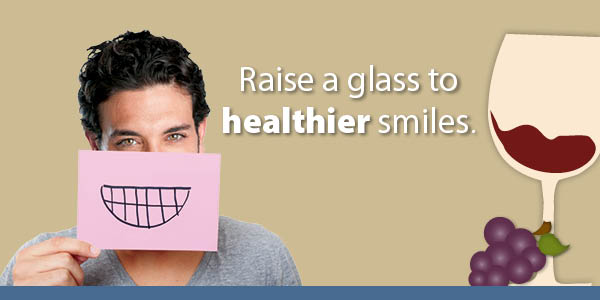By admin
11 Nov, 2015
Dental Discomfort, Dental Tips, General Dentistry, Lifestyle, Preventive Dental Care
brushing, enamel, fluoride, gum disease, sensitive teeth, teeth grinding, teeth whitening, tooth decay, tooth sensitivity

A breath of crisp winter air, a sip of hot cocoa, a bite out of a sweet candy cane — all of these have two things in common: They remind us of the rapidly approaching holiday season, and though less pleasant, each can also trigger the sharp, unexpected pain associated with tooth sensitivity.
What Is Tooth Sensitivity?
Tooth sensitivity is experienced as a sharp, sudden pain that is felt in the tooth and gum areas. It occurs when gum and enamel loss expose the sensitive surface of the teeth that lie beneath, called dentin. Dentin is less dense than enamel and contains thousands of tubes that lead to the tooth’s nerve center, called the pulp. Once the protective cover is lost, heat, cold, and sweet and acidic foods can reach the nerves inside the tooth through the tubes, eliciting a pain response. Fortunately, once the cause of tooth sensitivity is identified, there are options for treating it and restoring optimal oral comfort.
Causes of Tooth Sensitivity
Some of the things that lead to tooth sensitivity include:
- Overbrushing, brushing too hard, or brushing with a hard-bristle toothbrush
- Grinding and clenching teeth
- Tooth decay located near the gumline
- Plaque buildup
- Tooth-whitening products
- Gum disease
- Fractured tooth
- Dental work
Preventing Tooth Sensitivity
The key to preventing tooth sensitivity is maintaining good oral-hygiene practices. Brushing twice a day, flossing once a day, and rinsing regularly will go a long way toward keeping your gums and teeth healthy and strong. The following are additional steps you can take for reducing tooth sensitivity:
- Always use a soft-bristled toothbrush and brush gently
- Avoid foods and beverages that are acidic
- If you grind your teeth, talk to your dentist about getting a mouth guard to wear when you sleep
- Brush with toothpaste for sensitive teeth
- Keep your enamel strong by using products with fluoride
Treating Tooth Sensitivity
The manner in which tooth sensitivity is treated largely depends on the condition that led to it or the situation that is causing it. If sensitivity is resulting from a cavity or a chip in a tooth, a restoration can be placed to fix it. However, if sensitivity results from exposed dentin, there are treatments designed to reduce the discomfort.
- Fluoride varnish can be applied to the vulnerable, exposed areas of your teeth.
- A mouth tray with a high concentration of fluoride in the form of foam can be placed in your mouth for five minutes. This treatment strengthens weak areas.
- The bonding agent used to adhere restorations to teeth can be used to put a protective seal over the surface of the dentin.
- Gum tissue can be moved from one area of the mouth to an area where tissue has been lost from the root with a gum graft.
If you think you might be suffering from gum sensitivity, call us today at (661) 952-7865 to set up an appointment and find out more about what you can do to restore your oral comfort before the holidays hit.
More
By admin
24 Aug, 2015
Dental Emergency, Dental Tips, General Dentistry, General Health, Lifestyle, Preventive Dental Care
anxiety, broken tooth, chipped tooth, cracked tooth, lost tooth, nutrition, oral hygiene, plaque, smoking, stress, tooth decay, tooth loss, tooth trauma
It’s a beautiful summer day outside. You are walking through a park when, out of nowhere, a levitating bowl full of giant pinwheel lollipops appears in front of you. You reach for a particularly colorful one and take a huge chomp out of it. Suddenly, clouds fill the sky and shards of the lollipop fall from your mouth. You look down only to realize it’s your teeth that have all fallen to the ground instead!
Sound like a familiar nightmare? Bad dreams about tooth loss are not uncommon, and neither is the fear of losing your teeth as you age. While it can happen, tooth loss isn’t inevitable. There are certain avoidable conditions that lead to it, and if tooth loss does occur, there are some amazing solutions — like dental implants — that can restore your natural-looking smile to its original state.
Are You at Risk for Tooth Loss?
Tooth loss is not a natural occurrence. The following are some common circumstances that most often lead to the loss of a tooth or teeth.
Tooth trauma: One of the most common causes of tooth loss is trauma caused by impact or unexpected contact with a hard surface. Breaking, chipping, and cracking that leads to a tooth needing to be removed can be caused by a fall, getting hit with a bat or ball while playing sports, or biting down on a hard object, like a hidden seed or shell.
The use of teeth as a tool is another example of how trauma can lead to a tooth extraction. Avoid activities like removing caps, tearing tags, and cutting threads with your teeth. There are tools that are made for these types of jobs, so you can avoid damaging your teeth.
Disease: Poor oral hygiene and nutrition cause the buildup of plaque and tooth decay that leads to periodontal disease. Preserving your teeth means more than just brushing twice a day and flossing; it means taking care of your whole health. You need to maintain a balanced diet, moderate or eliminate activities like drinking alcoholic beverages, and get to those routine dental visits. Periodontal disease doesn’t just put you at risk for tooth loss — it puts your whole health at risk.
Stress and anxiety: Stress and anxiety are detrimental to many aspects of your health, including your teeth. It can cause you to clench your jaw and grind your teeth during the day, as well as in your sleep. There are many stress-relief techniques such as breathing exercises, yoga, and meditation that can help. You should also talk to your dental provider about being evaluated for a bite guard to protect you from nighttime clenching and grinding.
Smoking: Everyone knows that smoking is bad for your lungs and your heart, but people don’t realize that it also increases the likelihood of tooth loss. It affects the blood supply to your gums and increases the occurrence and severity of periodontal disease. The risks of tooth loss increase with both traditional and smokeless cigarettes.
The bottom line is that the key to keeping your teeth throughout your lifetime is taking care of your whole health. If tooth loss does occur, don’t despair: Your provider has solutions available that can restore your smile. From tooth implants to a variety of denture options, there is a natural-looking option perfect for you.
To find out more about how to maintain your natural smile, call the office of Dr. Doug Weber today at (661) 952-7865.
More
A recent experiment has led some researchers to suggest that wine may help fight dental cavities. In the experiment, cultures of various types of cavity-causing bacteria were grown as bio-film, then submerged in a variety of liquids, including red wine with and without alcohol, as well as wine spiked with grape-seed extract. All the variations of wine were the most successful at getting rid of bacteria.
There are a couple of factors that contribute to this much-beloved libation being effective at cavity fighting. The antioxidants present in grape-seed extract can improve your overall health, but the key to wine’s effectiveness is its substantive ability to remain on teeth for an extended length of time. Wine’s high substance gives its antioxidants all the time they need to fight harmful bacteria.
But before any wine lovers raise a glass to celebrate yet another reason to have a glass, be warned that what makes wine good for your oral health also makes it problematic for the aesthetic integrity of your teeth. It’s true that ingredients in wine can lead to fewer dental cavities; however, it also causes discoloration. That’s right. While drinking wine regularly may fight dental cavities, it also stains teeth. This news may put a damper on your celebratory mood, but do not dismay — you can still enjoy your favorite merlot. There are a variety of teeth-whitening treatments that will keep your smile bright white and looking its best.
From teeth whitening strips to rinses to in-office bleaching, there is a wide array of fast and affordable solutions for stained teeth. So go ahead and indulge in a glass of your best cabernet at dinner tonight, and then call Dr. Weber today at (661) 952-7865 to find out how you can maintain a bright smile with a glass in hand!
More
 Of all the ways a person can convey confidence and happiness, a powerful, gleaming smile might be the most instantaneous. A bright, white row of perfectly aligned teeth is not only beautiful but also mesmerizing. It’s hard to turn away from a stunning smile — do you have one that you love to proudly display?
Of all the ways a person can convey confidence and happiness, a powerful, gleaming smile might be the most instantaneous. A bright, white row of perfectly aligned teeth is not only beautiful but also mesmerizing. It’s hard to turn away from a stunning smile — do you have one that you love to proudly display?
Few people are blessed with a perfectly aligned, bright smile, but our Lancaster, CA dental office has helped many happy patients achieve one. Through a process we call “smile design,” we can transform your mouth using the artistry of our dental healthcare professionals to create a gorgeous grin that you’ll never want to hide. So what does smile design entail?
- Performing consistent cleanings and root scaling to make sure teeth are healthy and cavity free
- Filling cavities and putting a stop to other signs of decay
- Restoring damaged or missing teeth with crowns or implants
- Creating veneers for teeth that have intense staining or are misshapen
- Treating misaligned teeth with an alignment-therapy method
- Whitening the teeth using in-office procedures that can immediately brighten teeth by an average of eight shades
Not everyone will pursue the same smile design process; having just one of these procedures done can vastly improve the quality of your oral health and your confidence.
If you’re wondering which procedures would be most helpful in achieving your perfect smile, set up a cosmetic dental evaluation with Dr. Weber today. After you tell Dr. Weber what you’re looking for, he will discuss our guidelines and cover the unique changes he can make to your teeth to turn the smile of your dreams into a reality. Please call our Lancaster, CA dental office at 661-952-7865 or complete our online form to request an appointment and find out what the latest advances in cosmetic dentistry can do for your smile!
More
If you are currently undergoing chemotherapy, we know that you are already in extreme discomfort. What patients may not realize is how these strong drugs can effect the area of concern as well as the rest of your body, including the mouth area. Chemotherapy drugs kill cancer cells, but also affect normal cells, including cells in the mouth. Healthy cells can generally repair the damage caused by the chemotherapy however, some side effects can still exist. The problems depend on the chemotherapy drugs and how your body reacts to them. You may have these problems only during treatment or for a short time after treatment ends.
It’s important to know that side effects in the mouth can be serious.
- The side effects can hurt and make it hard to eat, talk, and swallow.
- You are more likely to get an infection, which can be dangerous when you are receiving cancer treatment.
- If the side effects are bad, you may not be able to keep up with your cancer treatment. Your Physician may need to cut back on your cancer treatment or may even stop it.
What mouth problems does chemotherapy cause?
- Soreness and ulceration of the mouth
- Mouth infections
- Dry mouth
- Bleeding gums
- Burning, peeling, or swelling tongue
- Change in taste
Why Should I See Dr. Weber?
Schedule an appointment with Dr. Weber in Lancaster, CA before chemotherapy begins to inorder to help prevent potentially serious mouth problems. Dr. Weber can help you get your teeth and gums into the healthiest possible condition before your treatment begins.
During your chemotherapy treatment you may experience dry mouth therefore there will be less saliva to protect the teeth. Fluoride toothpaste or a fluoride mouthwash during your chemotherapy will help protect your teeth and can be prescribed by Dr. Weber.
Discuss with your oncologist any dental work that needs to be done during your chemotherapy treatment. There will be times during your chemotherapy when you will be at more risk of bleeding and infection, and the timing of any dental work needs to be planned very carefully. Speak with your oncologist about ideal timing for dental procedures. Dr. Weber would be happy to help you communicate with your physician as well. Schedule an appointment with Dr. Weber as soon as you can before chemotherapy treatments begin or at any time during your treatments if you are experiencing discomfort.
What Will the Lancaster, CA Dental Team at Douglas B. Weber, D.D.S. Do?
- Check and clean your teeth
- Take x-rays
- Take care of mouth problems
- Show you how to take care of your mouth to prevent side effects
Additional Resources:
http://www.macmillan.org.uk/Cancerinformation/Livingwithandaftercancer/Symptomssideeffects/Mouthcare/Chemotherapy.aspx
More




